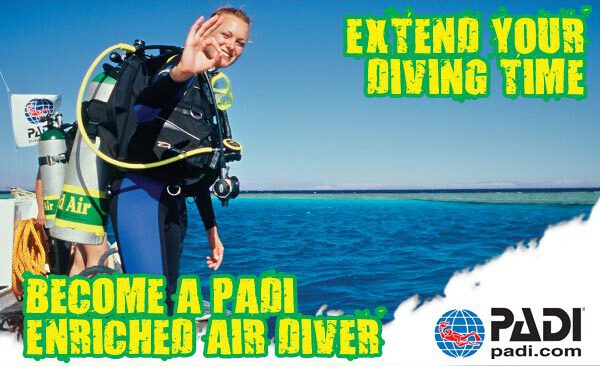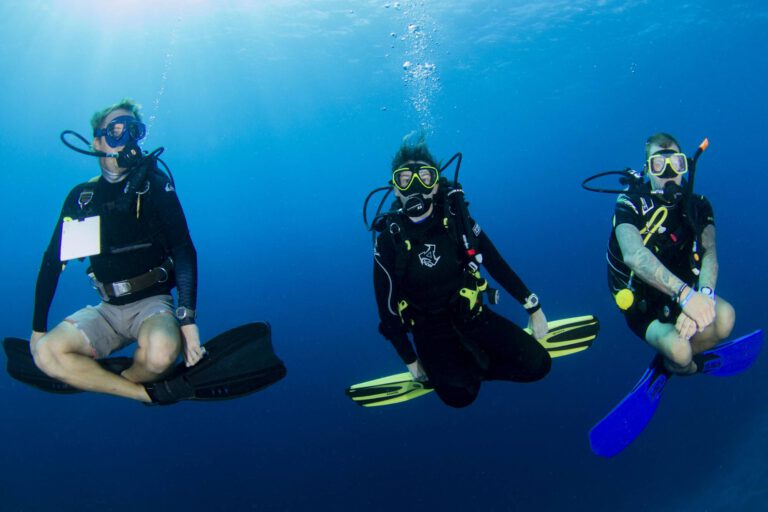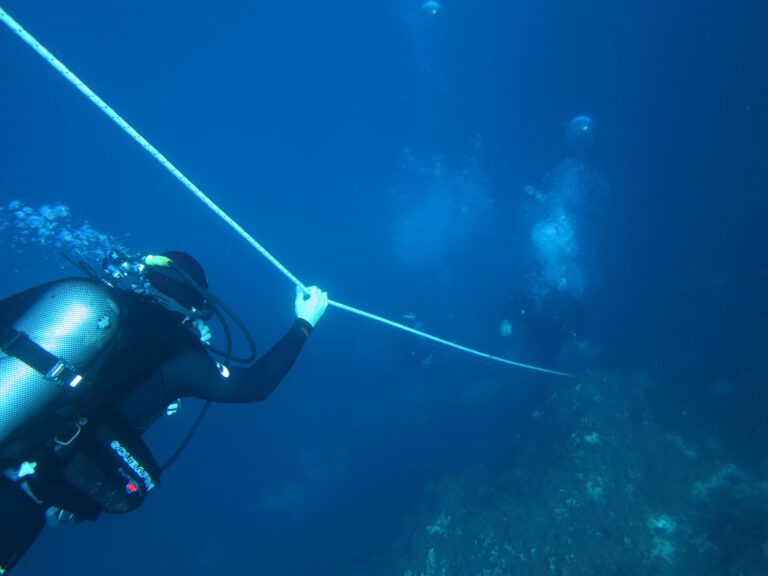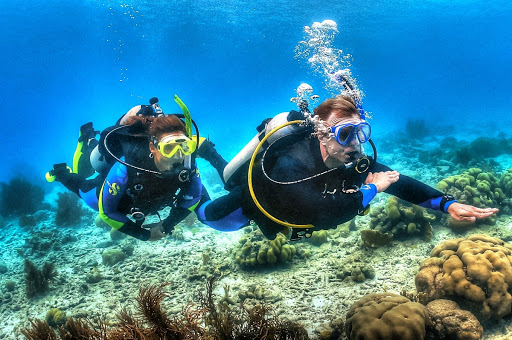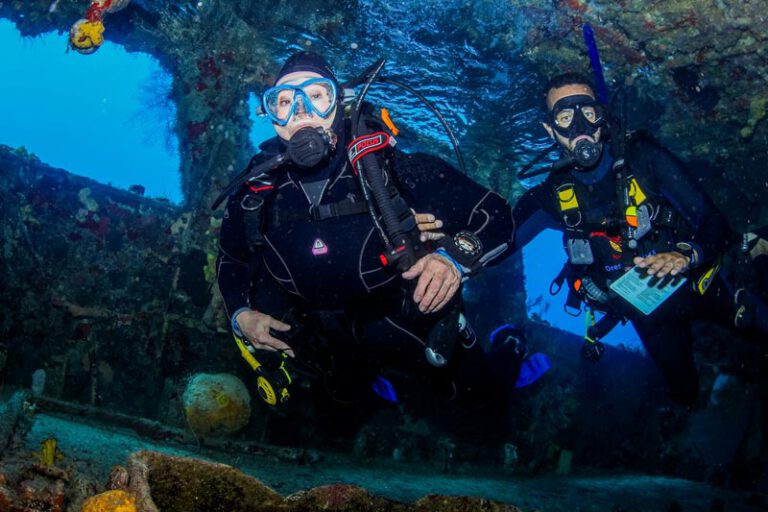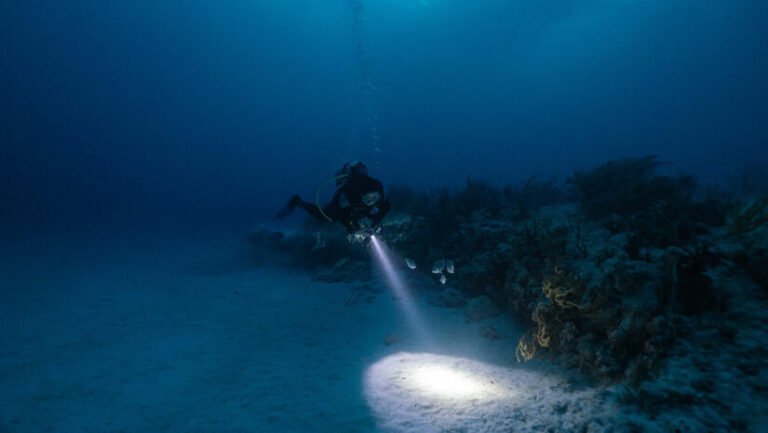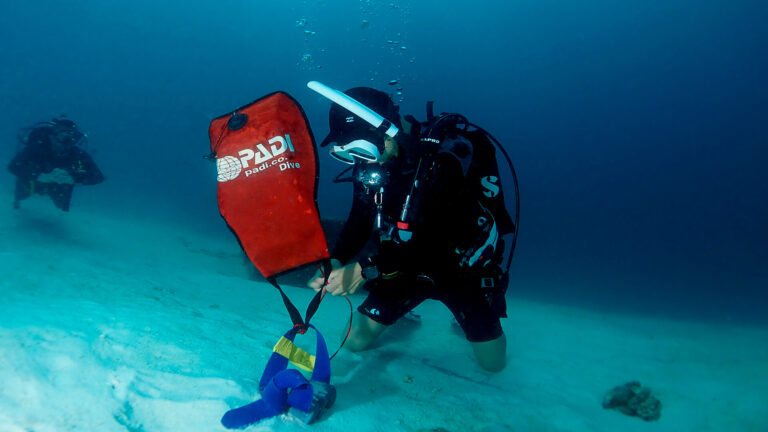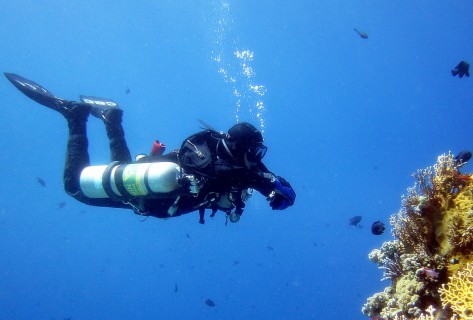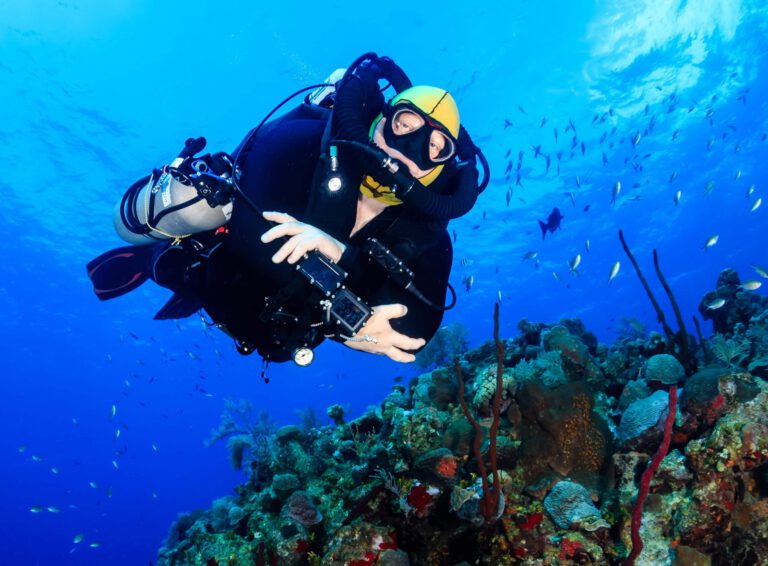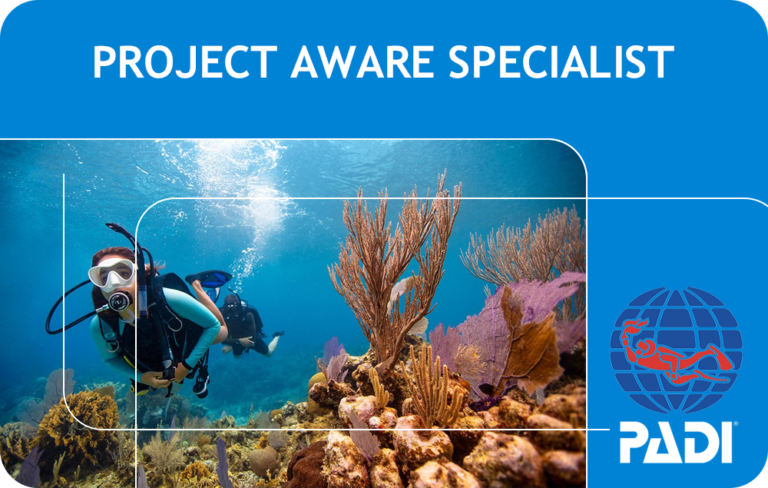Nitrox – Enrich Air Diver Course
Enriched Air, Also Known As Nitrox Or EANx, Contains Less Nitrogen Than Regular Air. Breathing Less Nitrogen Means You Can Enjoy Longer Dives And Shorter Surface Intervals. No Wonder Enriched Air Diver Is The Most Popular PADI® Specialty.
Diving With Nitrox (Enriched Air) Is Very Popular In The Dive Industry. It May Seem Complicated, But The Theory Is Simple. Diving With Nitrox Allows You To Avoid Your Limits, And Also Allows You To Stay Longer Underwater. You Can Learn To Dive With Nitrox After Just A Short Session Of Theory, And This Certification Is Valid World-Wide.
Price : RM550 (DRY Course)
Package Price: Click Here
Peak Performance Buoyancy
Excellent buoyancy control is what defines skilled scuba divers. You’ve seen them underwater. They glide effortlessly, use less air and ascend, descend or hover almost as if by thought. They more easily observe aquatic life without disturbing their surroundings. You can achieve this, too. The PADI Peak Performance Buoyancy Specialty course improves the buoyancy skills you learned as a new diver and elevates them to the next level.
Price : RM649 (2 Dives)
Package Price: Click Here
Deep Diver
During the PADI Deep Diver course, you’ll learn how to plan deep dives, manage your gas supply and how to identify and manage narcosis. You’ll learn about buddy contact procedures, safety considerations and buoyancy control at depth.
Price : RM899 (4 Dives)
Package Price: Click Here
Navigation Diver
Be the scuba diver everyone wants to follow because you know where you are and where you’re going. The PADI Underwater Navigator course fine-tunes your observation skills and teaches you to more accurately use your compass underwater. If you like challenges with big rewards, take this course and have fun finding your way.
Price : RM749 (3 Dives)
Package Price: Click Here
Wreck Diver
Whether purpose-sunk as an artificial reef for scuba divers, or lost as the result of an accident, wrecks are fascinating windows to the past. Ships, airplanes and even cars are fascinating to explore and usually teem with aquatic life. Each wreck dive offers a chance for discovery, potentially unlocking a mystery or spying something others have missed. The PADI Wreck Diver Specialty course is popular because it offers rewarding adventures while observing responsible wreck diving practices.
Price : RM899 (4 Dives)
Package Price: Click Here
Night Diver
The thought of dipping below the surface at night seems mysterious, yet so alluring. Although you’ve been scuba diving at a site many times before, at night you drop into a whole new world and watch it come to life under the glow of your dive light. The scene changes as day creatures retire and nocturnal organisms emerge. If you’ve wondered what happens underwater after the sun goes down, sign up for the PADI Night Diver Specialty course.
Price : RM899 (4 Dives)
Package Price: Click Here
Search & Recovery Diver
The next time someone loses an item underwater, you can be the hero that finds the missing object. In the PADI® Search and Recovery course, you’ll learn how to find lost objects underwater. You’ll practice different types of underwater search patterns and learn how to use a lift bag as you plan and execute mock search operations.
Price : RM899 (4 Dives)
Package Price: Click Here
Side Mount Diver
Discover the balance and efficiency of sidemount scuba diving with your PADI dive instructor. Many divers find sidemount tanks are more comfortable and easier to put on in the water. Sidemount diving is also beneficial for divers who want improved balance and prolonged dives.
Price : RM1499 (4 Dives)
Package Price: Click Here
Self Reliant Diver
With proper training, equipment and the right attitude to accept the risks involved in independent diving, an experience diver can responsibly engage in dives without a buddy. Self-reliant diving is an adventure activity that is not for everyone, but does have its place. If you have the mental discipline and commitment to learn and follow self-reliant diving techniques, you’ll bolster your skills and confidence when diving alone, in a dive pair or as part of a team.You need to be a PADI Advanced Open Water Diver who is at least 18 years old and has 100 logged dives to enroll in the Self-Reliant Diver course. You’ll also complete a skills assessment with your PADI Self-Reliant Diver Instructor before diving into the course.
Price : RM1299 (3 Dives)
Package Price: Click Here
Project Aware
Make a difference for yourself and others by learning and applying tips to save the ocean. The PADI AWARE Specialty course equips you with tangible actions and opportunities to bring about positive ocean change. A portion of the proceeds from every PADI AWARE Foundation™ course funds AWARE’s critical conservation work to remove marine debris, secure protection for sharks & rays, expand marine protected areas, and support local grantees.
